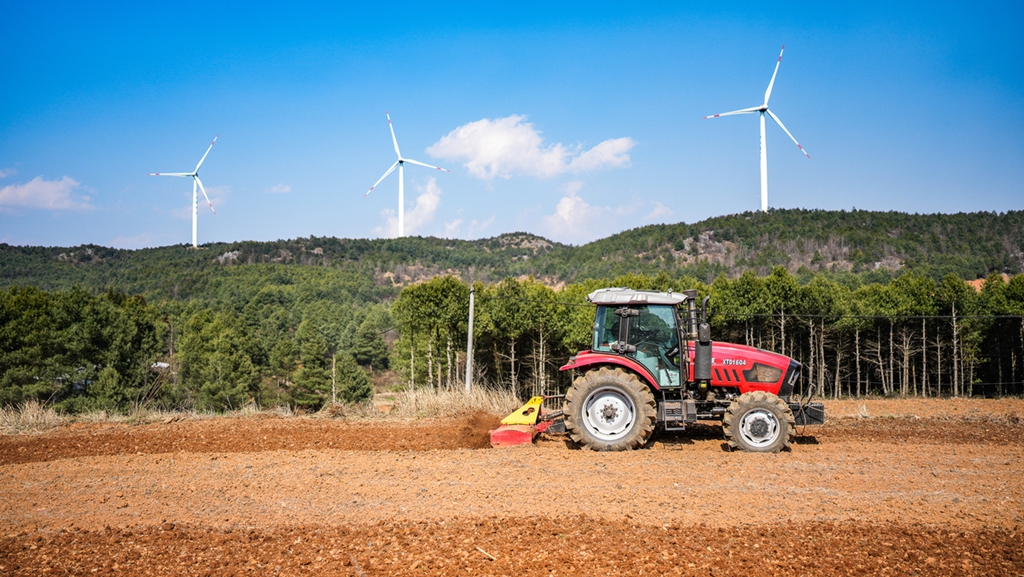Rural vitalization crucial for country's modernization

A farmer works in a field in Shayu village of Panzhou city, Guizhou province, Feb 9, 2023. [Photo/Xinhua]
The vitalization of rural areas is the topic of this year's No 1 central document that the Central Committee of the Communist Party of China issued on Monday. It emphasizes that efforts be made to build a strong agricultural sector, and make rural villages beautiful and comfortable to live in.
That building up China's strength in agriculture was for the first time written into a report to the national congress of the CPC late last year speaks volumes about the importance the central authorities have attached to the development of China's agriculture and rural areas, and improving the lives of rural residents.
The importance of food security for 1.4 billion people can never be overestimated. That explains why Monday's document has particularly emphasized the production of agricultural products as the top priority for rural vitalization. The rice bowls of the Chinese people must be held in their own hands, which has been repeatedly stressed in various documents of the central authorities. Raising grain output by 500 billion kilograms is proposed in the document, which also requires that acts to destroy green shoots of grain must be prohibited.
Expanding the channels for rural residents to increase their income is also stressed as an important component for the vitalization of rural areas. The processing of rural products and the logistics for their distribution must be updated, and so too the services in rural areas so as to create conditions conducive to the development of new industries.
Given that the development in China's rural areas is unbalanced and geographic conditions in different rural areas vary considerably, it is imperative for governments at all levels to make specific plans for the vitalization of particular rural areas. Such plans should be made in such a way that the potential of local rural products or their strength in a particular aspect can be better tapped.
It is clarified in the document that large scale demolition of rural housing and the building of pavilions or other ornamental structures are strictly prohibited. Reconstruction or renovation programs should never be launched unless they are for the benefit of rural residents and are not against their will.
Details make the difference. Work on rural development requires that the local officials responsible for it must conduct investigations into the situation in rural villages and establish close contacts with local residents in order to learn what they think about the vitalization of their own villages. Plans about specific work must have the support of the majority of local villagers and their implementation should bring real benefits to villagers.
China's second centenary goal of building a modern socialist country in all respects will not be realized without advanced agriculture and modernized rural areas. It remains a challenging and arduous task, but rural vitalization is crucial to the future of the country.








